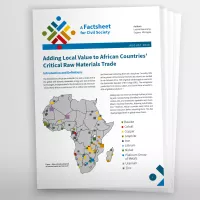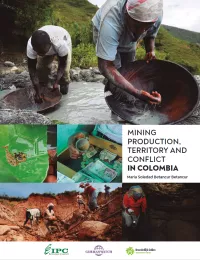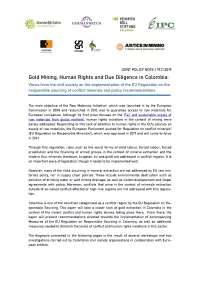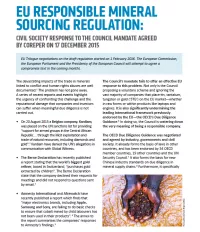
The creation of value through trade and processing of critical raw materials is a crucial step towards sustainable economic development in African countries. Our fact sheet provides an overview of some of the relevant initiatives in recent years. We highlight obstacles to the Africa Mining Vision and point to solutions through regional co-operation. In addition, the Lobito Corridor serves as case study to assess co-operation of African countries on building supply chains.





